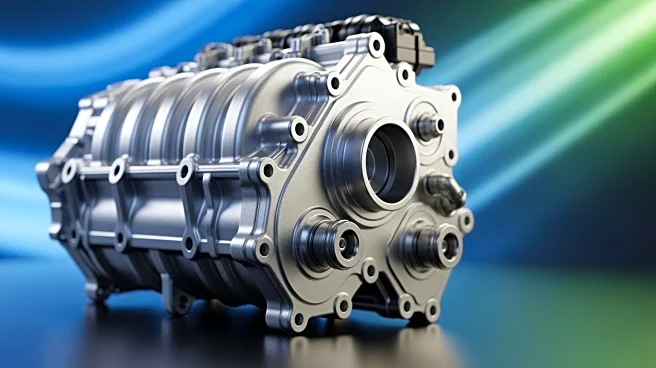What's Happening?
The US Department of Commerce has announced an expansion of steel and aluminum tariffs to include 407 additional products, notably automotive exhaust system parts and electrical steel crucial for electric vehicle (EV) production. These tariffs, imposing a steep 50% duty, are set to take effect immediately, affecting over $200 billion in annual imports. The move aims to bolster the American steel and aluminum industries by increasing the cost of imported goods, thereby encouraging domestic production. The tariffs will impact a wide range of products, including components for buses, air conditioners, and appliances such as refrigerators and dryers.
Why It's Important?
The expansion of tariffs is significant as it directly affects the cost structure of industries reliant on steel and aluminum imports, particularly the automotive and renewable energy sectors. By increasing import costs, the tariffs could incentivize domestic production, potentially revitalizing the US steel and aluminum industries. However, this may also lead to higher consumer prices for affected products, impacting businesses and consumers alike. The move reflects ongoing trade strategies aimed at reducing dependency on foreign imports and strengthening domestic manufacturing capabilities.
What's Next?
The immediate implementation of these tariffs will likely prompt reactions from affected industries, including potential lobbying for exemptions or adjustments. Companies may need to reassess their supply chains and production strategies to mitigate increased costs. Additionally, international trade partners may respond with their own measures, potentially leading to trade disputes or negotiations. The long-term impact on domestic production and consumer prices will depend on how industries adapt to these changes.









